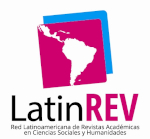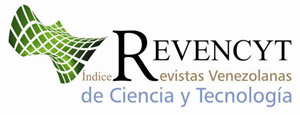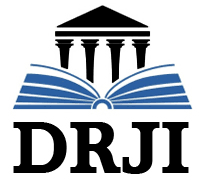Navegando en medio del equilibrio y el conflicto
Palabras clave:
administración pública, conflicto y equilibrioResumen
En el contexto de la coincidencia y las tensiones presentes en las dependencias públicas en Venezuela, este estudio se enfoca en examinar la diversidad del sistema gubernamental y destaca la importancia de promover la cohesión y abordar los desafíos en su funcionamiento. La expresión puede parafrasearse como: "El objetivo es explorar la idea de que existe un equilibrio entre acuerdo y desacuerdo en este contexto, buscar sus fundamentos filosóficos y evaluar cómo se puede utilizar para mejorar la administración pública y abordar nuevos problemas". Algunas escuelas de pensamiento, como el estructuralismo y el positivismo, suscriben esta percepción del equilibrio como tarea esencial de la dirección. Además, se aborda un examen inicial de muchos de los trabajos ya publicados y de las verdades empíricas sobre las que se han basado dichas aseveraciones. Las conclusiones subrayan lo complicado de los asuntos administrativos en este país, debido a la necesidad constante de mantener un estado equilibrado que pueda asegurar estabilidad y adaptación, al mismo tiempo gestionar conflictos dentro del marco político social actual. La relevancia de buscar soluciones efectivas en las organizaciones venezolanas radica en incluir la calidad y el mejoramiento continuo en sus procesos.
Descargas
Referencias
Ávalos, R. (2008). Innovación de la gestión pública: Análisis y perspectivas. Revista de Administración Pública. Nº 8.http://www.azc.uam.mx/publicaciones/gestion/num8/doc1.htm.
Bozeman B. y Crowther M. (2021). Public Administration in the 21st Century: Challenges and Opportunities. Routledge,
Centro Latinoamericano de Administración para el Desarrollo (CLAD). (2023). Plan estratégico 2024-2026. https://clad.org/wp-content/uploads/2024/05/Planificacionestrategica-CLAD-2024-2026-Oficial.pdf
Coser, L. A. (1967). Continuities in the Study of Social Conflict. New York: The Free Press.
Dahrendorf, R. (1959). Class and Class Conflict in Industrial Society. Stanford, CA: Stanford University Press.
Drucker, P. F. (1954). The practice of management. Harper & Brothers.
Hayek, F. (1944). The Road to Serfdom. Chicago: University of Chicago Press.
Hernández R., Fernández C. y Baptista M. (2014). Metodología de la investigación (6ª ed.). McGraw-Hill Education.
Keynes, J. (1936). The General Theory of Employment, Interest, and Money. London: Macmillan.
Martínez, M. (1996). Razones para un nuevo paradigma científico. En Comportamiento humano: nuevos métodos de investigación. México: Editorial Trillas.
Martínez, M. (2009). El proceso de nuestro conocer postula un nuevo paradigma epistémico. Revista Relea. Editorial CIPOST. http://prof.usb.ve/miguelm/procesonuestroconocer.html.
Marx, K. (1859). Zur Kritik der politischen Ökonomie [A Contribution to the Critique of Political Economy]. Berlin: Franz Duncker.
Ostrom, E. (1990). Governing the Commons: The Evolution of Institutions for Collective Action. Cambridge, UK: Cambridge University Press.
Romero, J. (2004). El Nuevo Gerente Venezolano. Una epistemología para la administración pública venezolana. Caracas: Ministerio de Educación Universitaria, Consejo Nacional de Universidades, Oficina de Planificación del Sector Universitario
Simmel, G. (1955). Conflict and the Web of Group Affiliations. New York: Free Press.
Smelser, N (2019). "Sociology: An Introduction." University of California Press.
Stoker, G. (Ed.). (2011). The politics of local governance. Palgrave Macmillan.
Walras, L. (1874-1877). Éléments d'économie politique pure. Lausanne: Corbaz.
Publicado
Cómo citar
Número
Sección
Licencia
Derechos de autor 2024 Dilia Josefina Padrón Noriega

Esta obra está bajo una licencia internacional Creative Commons Atribución-NoComercial-CompartirIgual 4.0.





















